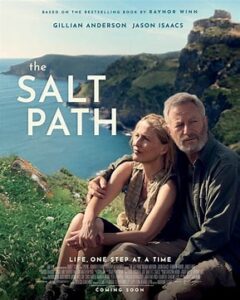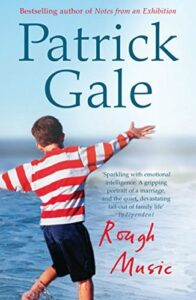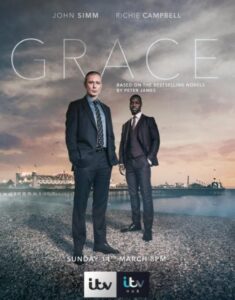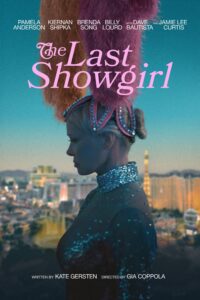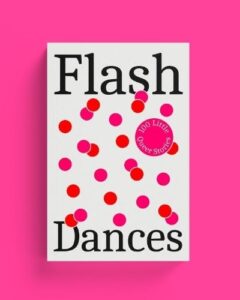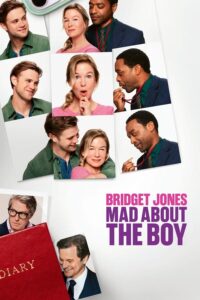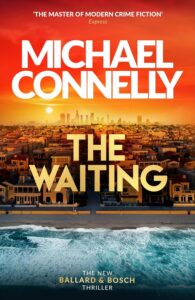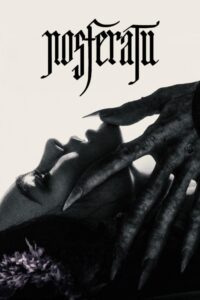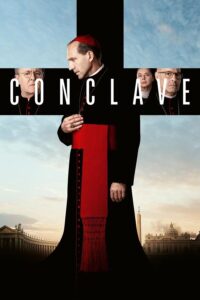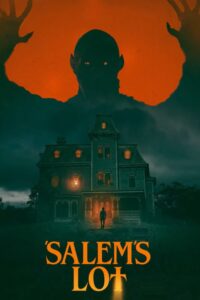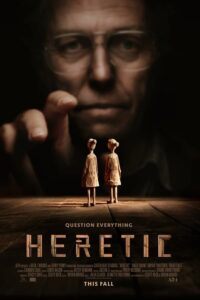Category: DavidGeeBlog
David at the movies: a life-affirming walk along the coast
THE SALT PATH
This is the true story of Gaynor and Moth Winn who walked the cliff-hugging trail from Somerset to Land’s End after Moth received a terminal diagnosis and bailiffs seized their home and everything in it. Living in a flimsy tent on a flimsy budget, they managed to survive a long summer before a renovation project gave them shelter through the winter. Gaynor took up sheep-shearing to boost their funds.
Gillian Anderson, shorn of make-up, gives a powerful raw performance as Gaynor, and Jason Isaacs is on equally fine form. With mostly hand-held cameras the film is fully immersive, making you feel as if you’re rambling in this glorious landscape/seascape with them through weather that is not always glorious.
Like previous road trip movies, this is full of the feel-good factor with moments of the feel-sad factor to break the mood. Anderson and Isaacs set out to milk every ounce of sympathy from you, and you are meant to emerge from this picture feeling that your life has been affirmed as well as theirs. I enjoyed all the ups and downs of the coastal hike.
What I’m reading: the prison governor’s son
Patrick Gale: ROUGH MUSIC
Taking his elderly parents to a rented cottage in Cornwall, bookshop proprietor Will recalls a childhood holiday in the same location, which shaped the man he has become. His father, retired now, was governor of Wandsworth Prison. In the early story an American cousin joined the family with her widowed father who came close to breaking up the family. In the modern story Will’s sister is married to a bisexual man who is Will’s secret lover. Infidelity – and the price you risk paying for it – is the theme that links the two narratives.
The key character in both stories, which are unravelled in intricate detail, is Frances, Will’s mother. A touch bohemian in Will’s boyhood, she is sliding into dementia in old age but still capable of both breaking and glueing back together the ties that bind her family.
Patrick Gale (whom I wish I’d discovered earlier) writes about life and love in intricate detail. His prose is beautifully structured: “She felt haunted by truths whose significance danced beyond her grasp.” I found the slow pace of this novel offputting at first. But it’s only when events reach crisis points that you realise how emotionally invested you, the reader, are with these people. This is so much more than just another gay novel; it’s about looking for love and safeguarding it when you find it.
David at the movies: Singing the vampire blues!
SINNERS
This is two movies for the price of one! A pair of Black brothers open a blues bar in Louisiana cotton-growing country, which is raided by vampires! Impossible not to be reminded of Tarantino’s From Dusk to Dawn, where a kidnap story morphed into a vampire bloodfest.
Both halves of Sinners are brilliantly executed. The singing in the bar is at the level of Diana Ross’s Billie Holliday, and the vampire slaughter is totally at Tarantino’s pitch. The highly talented, almost entirely Black cast were mostly new names to me. They all play their roles with total seriousness, which prevents the movie from sliding into camp, which often happens with OTT horror – as in the Dr Phibes movies or Theatre of Blood (Vincent Price really was the King – or Queen! – of High Camp). The apocalyptic ending is up there with the latest adaptation of Mr King’s Salem’s Lot. Special effects have come a long way since Christopher Lee fell to bits at the end of the 1958 Hammer Dracula – still of hallowed recall.
Writer/director Ryan Coogler (whom I only know from the Creed movies) is at the top of his game. The sumptuous style and cinema-tography are in the league of Coppola’s Dracula. All that gore, plus Singing the Blues – there’s a whole lot going on here.
What I’m watching: Sorry to be Graceless about GRACE
Usually, if I take an instant dislike to a TV show I turn it off. I didn’t think much of ITV’s Grace when it started four years ago, but I stuck with it because it’s filmed in and around Brighton, my home ‘manor’. The first episode of the current fourth series reached its climax on the bank of the river Ouse in Newhaven, a bare mile from where I live.
This week’s episode (3 of 4) had corruption within the police unit as its theme. It was a pale shadow of Line of Duty, which has kept us on the edge of our seats for six series slowly unravelling an endless seam of corruption. Line of Duty’s top-notch cast includes Vicky McClure, one of my favourite TV actresses.
If Duty is top-notch, then Grace is bottom-notch. I’m not sure who to blame, the actors or the writers, but I find each week’s episode less convincing than the previous one. This week the whole show seemed clunky, underwritten, amateurish. I don’t read the books, which are hugely popular, because I find Peter James’s style a tad bland and his plots a bit thin (I prefer US crime fiction, and Michael Connelly is my main man), but it may be the screenwriter who fails to give the actors lines they can breathe life into.
In contrast to Grace and leaving aside Line of Duty (another Final Series is now promised), BBC’s This City Is Ours is an ace show which I binged on iPlayer. James Nelson-Joyce’s Michael is reminiscent of Al Pacino’s Michael Corleone in The Godfather and Sean Bean’s patriarch brought echoes of Marlon Brando’s magisterial Don Vito. There’s an “epic” feel to the production, which almost puts it above Line of Duty in the “pantheon” of UK crime drama.
My advice: don’t miss This City is Ours, but do miss Grace, unless like me you want to see which bits of Brighton they use. If this was EuroVision I’d give 12 points to This City and expect Grace to come in with nul points.

David at the Movies: the Show must Come Off
THE LAST SHOWGIRL
Francis Ford Coppola brought us, among other things, the Godfather trilogy, one of cinema’s greatest achievement. Now his granddaughter Gia Coppola, hits the limelight with this near-documentary-style drama about Shelley, an ageing Las Vegas showgirl, played by Pamela Anderson in a raw and searing performance. The revue she is in, styled on Paris’s Moulin Rouge –all ‘tits and ass’ as it was memorably described in A Chorus Line – is pretty tame by today’s standards and earmarked for closure.
Shelley tries and fails to reconnect with her semi-estranged daughter (Billie Lourd) and her stage-manager ex-boyfriend (Dave Bautista) At 57, with no other skills, she faces a future of waiting tables and serving cocktails. Jamie Lee Curtis has a star cameo as exactly that, an ex-showgirl cocktail waitress. Curtis steals the movie with a show-stopping solo dance number that reminded me of Gwen Verdon’s heart-rending routines in the original stage version of Sweet Charity.
Despite great acting and moody cinema-tography, The Last Showgirl feels a little flat. The story is too slight and Anderson is the only character given enough development. And there’s too long a wait to see Anderson’s show routine, which is pitch perfect, with a few sad echoes of a tired old drag queen.
What I’m reading: a collection of Flash Fiction
FLASH DANCES
I shouldn’t be reviewing this, since I’m one of the contributors under my other pen-name. Without drawing attention to my own story, I’ll highlight some of the others that tickled my fancy.
Flash Fiction can be as short as one sentence or up to 1,000 words. Flash Dances is a compilation of 100 stories (and a few poems) from members of the Gay Authors Workshop, which meets in London and on Zoom. The authors are from the LGBTQ+ community, but the themes often go outside gay issues.
Quite a few deal with dying and bereavement, including one relating the gruesome death of a male spider narrated in the first person. I also relished a topical story about assisted dying in Benidorm, a new addition to budget holiday options; and Four Black Dresses, in which an undertaker sensitively prepares a closeted transvestite for his cremation.
On a similar note, Last Word, only 13 lines long, ends with a dying woman whispering: “You’ve been a terrible husband, but I forgive you.” Thus ensuring he will never forgive himself. A whole novel encapsulated in two sentences. There are many outstanding contributions in this richly diverse collection.
If you’d like to Zoom in on Gay Authors Workshop, visit www.paradisepress.org.uk
David at the movies: BRIDGET JONES Chapter Four: a feel-good festival
BRIDGET JONES:
MAD ABOUT THE BOY
Usually when a movie ‘franchise’ gets to Chapter Four, the scripts get thinner and the acting more perfunctory. Bridget Jones’s fourth outing beats its predecessors hands down – pants down! Passing fifty and widowed by the death of Mister Darcy (Colin Firth), Bridget lets her chums talk her into online dating and immediately hooks up with a toyboy more than twenty years younger (Leo Woodall); he’s not just a sexy hunk, he’s a kind and serious man who bonds with her kids as well as with our heroine. An intense love affair ensues which, of course, has to go wrong so that someone else can have a bash at Bridget. Lecherous old Daniel Cleaver (Hugh Grant) keeps popping up, and there’s the brooding presence of Bridget’s son’s handsome science teacher (Chiwetel Ejiofor).
Renée Zellweger immersively and gleefully back into the title role. Bridget is older but not much wiser. She never stops worrying, and yet she juggles her kids, her career, her large and demanding circle of friends (Sally Phillips steals several scenes) and a sweaty love affair. The ghost of Colin Firth is a welcome bonus, as is the only-just-still-living Hugh Grant. Helen Fielding’s script feeds Bridget a near–constant interior monologue, which mostly consists of nonstop swearing; Zellweger gives the f-word fifty shades of nuance.
Michael Morris’s direction is up there with Richard Curtis’s. More than just a romcom, this is a frenetic feel-good festival. If Bridget can sail triumphantly through that worrisome period between youth and middle-age, so can we all (I did, decades ago). There are good times a-plenty. Go for it! And don’t miss this movie.
What I’m reading: like father, like daughter
Michael Connelly: THE WAITING
Renée Ballard’s team reopening old cold murder cases has a new member: Maddie Bosch, Harry Bosch’s daughter fresh out of training college. Mattie is standing in for her father, who’s undergoing chemotherapy and makes only brief appearances. A DNA hit identifies the likely perpetrator of a twenty-year-old series of rapes that culminated in a murder. But Maddie chances upon a stash of photographs that potentially unlocks one of Los Angeles’s most notorious unsolved murders, the ‘so-called “Black Dahlia” killing of 1947.
The two cases run side by side. As usual, Ballard’s team are hampered by a section chief obsessed with cost-cutting and a District Attorney with a grudge against the department. Maddie proves to have her father’s gift for digging down to the bare bones of a case. The murder of a team member provides a shock preface to Ballard’s confrontation with the killer/rapist.

Michael Connelly’s great gift is to take his readers deftly through the daily slog of interviews and searches that maker up a murder investigation, whether it’s contemporary or a cold case. His short crisp chapters totally eliminate the tedium that must accompany these cases in the real world. The tension is near constant and builds, as always, to a satisfying climax.
As for the Black Dahlia, if you go to Wikipedia you’ll find there have been dozens of named suspects over the decades. He’s America’s equivalent of Jack the Ripper. An unsolved crime can enthral us as much as one that ends in a judicial execution or a whole-life sentence.
David at the Movies: Vampire movie with great Style but not enough Substance
NOSFERATU
I’ve been looking forward to this. Recycling a title that’s almost more iconic than Dracula. But this version is a disappointing rehash. The core story isn’t strong enough to sustain the long running time (132 mins).
The beginning is especially slow: Thomas Hutter, the Jonathan Harker character (Nicolas Hoult), taking papers to Count Orlov (Bill Skarsgard) in his gothic castle. The long middle section is equally slow: Hutter’s wife Ellen (Lily-Rose Depp) becoming as obsessed with the vampire as he is with her. Various elements from the Dracula story are mixed in: the Renfield insect-eater, here called Knock (Simon McBurney) and Professor Eberhart, the Van Helsing know-it-all (Willem Dafoe).
The music is loud, but the scares are few until the last half-hour. Of the performances, only Ms Depp stands out, a beauty both haunting and haunted. Skarsgard’s Orlov is nowhere near as sinister as Max Schreck was a hundred years ago.
Production values are possibly a degree or two higher than in the Francis Coppola Dracula (1992), which for me remains the number-one. This version has great style but lacks pace and substance. That said, I’ll watch it again when it turns up on TV. Good, bad or indifferent, I find vampire movies endlessly watchable.
David at the Movies: the Papal Talent Show
CONCLAVE
Conclave has attracted 4- and 5-star reviews, so I expected it to be good, and it is. The recreated Sistine Chapel is glorious and, bursting with red-robed cardinals, I got a few flashbacks to TV’s Handmaids. Ralph Fiennes is Cardinal Lawrence, the Dean, charged with chairing the election of a new Pope; Stanley Tucci is his closest ally and John Lithgow his nemesis. All three are on top form, as is everybody in the cast. Only a handful of nuns are allowed to attend to the cardinals, so no big female parts, although Isabella Rossellini is given a key speech and is still a radiant beauty at 72.
Robert Harris writes great thrillers, and the screenplay keeps all the conspiracy elements, so that a very “talky” tale has tension all the way and moments of great excitement. If you haven’t read the book, I think the climax will surprise you; it knocked me for six.
The actors and all concerned should be grateful that the Vatican no longer issues the Papal equivalent of a “fatwa“. It used to.
* * * * * * * *
Technical issues kept my website offline for a few weeks. Here’s a brief update on the movies I’ve seen:
SALEM’S LOT
HERETIC
Two young female Mormon missionaries call at the house of Mr Reed down a country lane to peddle their brand of faith and soon wish they hadn’t.
The casting of Hugh Grant and the religious debating are clearly intended to give Heretic some extra “gravitas”, which works in the Upstairs chapter of the story, but Downstairs is a dark and dismal place where the movie and Mr Reed descend into Torture Porn, where so many modern horror movies take us.
Casting Grant elevates Mr Reed, but I’m not sure that playing Reed elevates Mr Grant.
* * * * * * * *
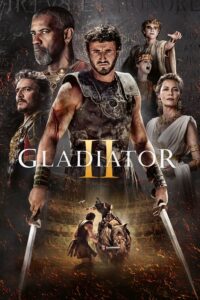 GLADIATOR II
GLADIATOR II
First the good news: as sequels go, this is better than most. And the way the screenplay slowly increases the links to the Russell Crowe version is quite neatly done. The bad news: almost everything is in a kind of desperate overdrive. There are twice as many gladiator fights and twice as many sea battles.
Paul Mescal does a brave job stepping into Russell Crowe’s sandals, but although he’s younger and cuter and more buff, his Lucius lacks the solidity and the gravitas that Crowe brought to Maximus. The sets, whether they’re CGI or fibreboard, are almost worthy of Liz Taylor’s Cleopatra, but the script is too long.
There is twice the violence of Part One, but there isn’t twice the resonance. We’re often told that Less is More; here More is quite a lot Less.
